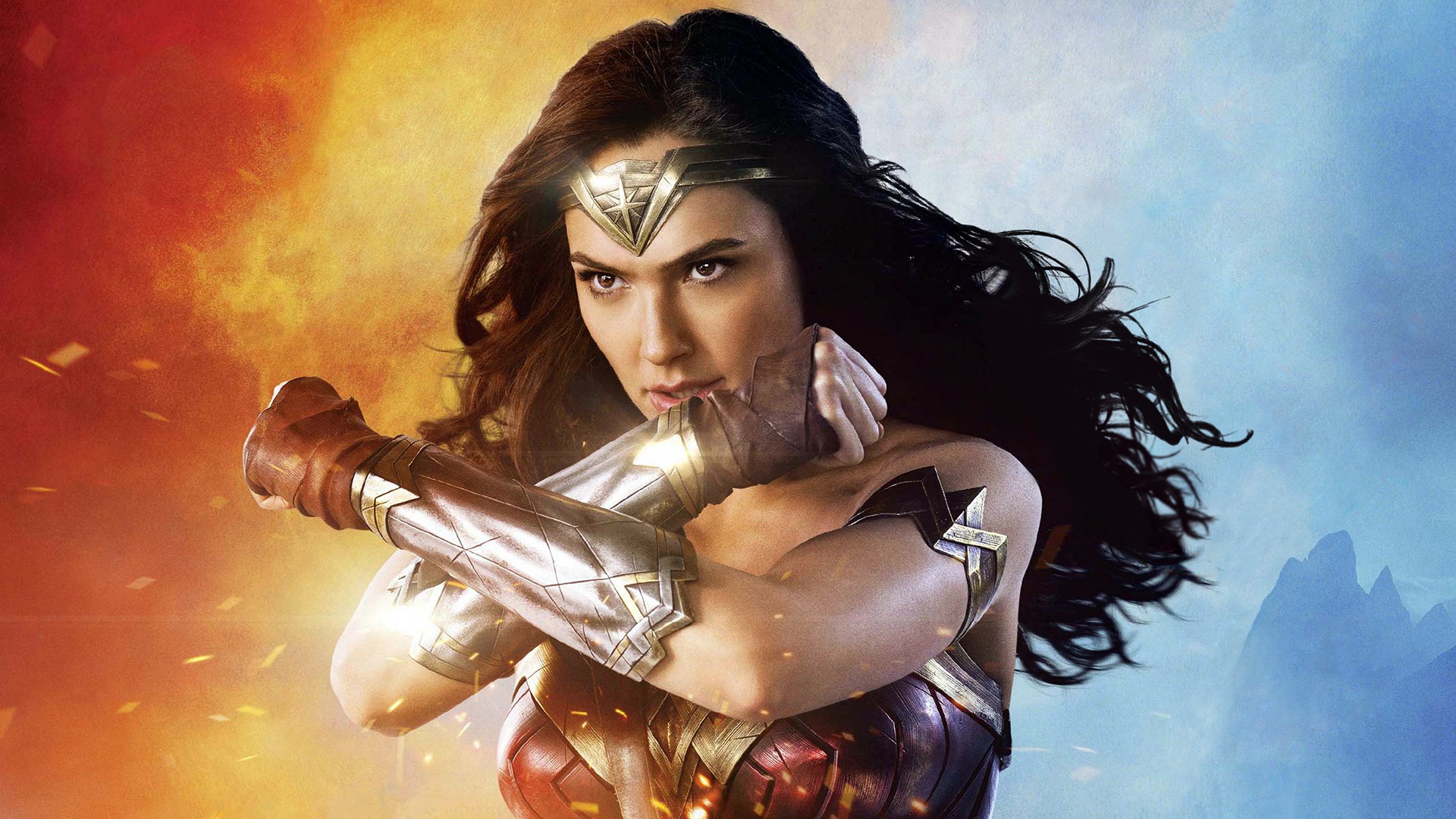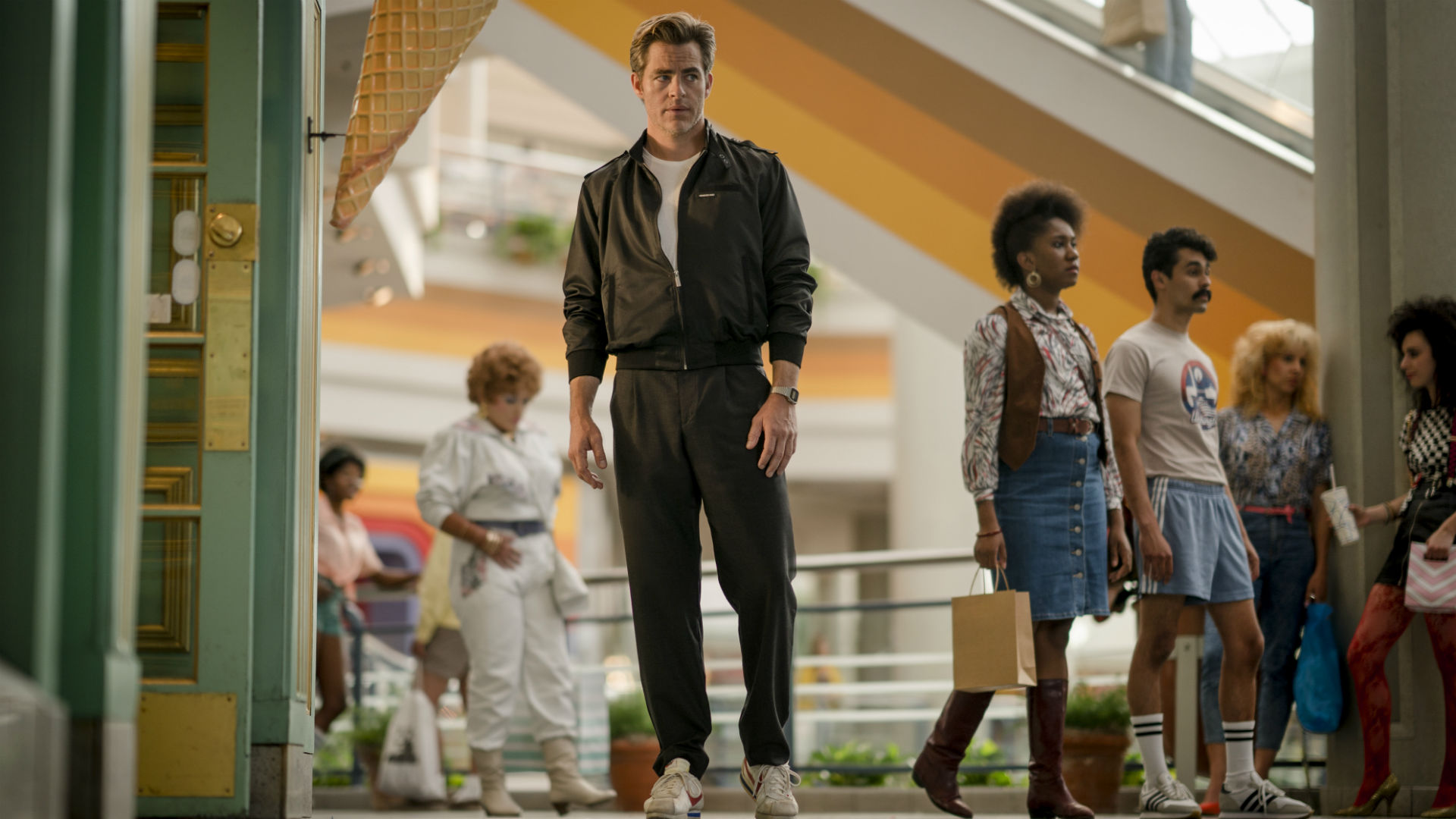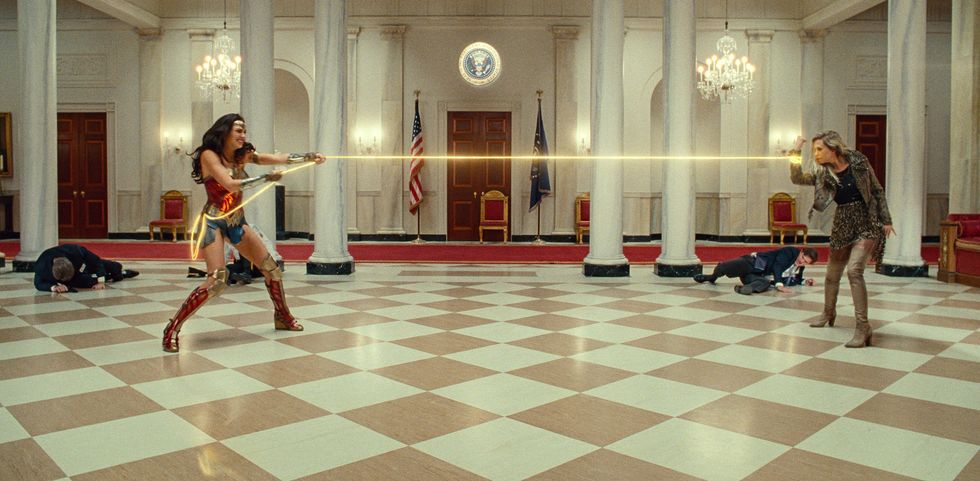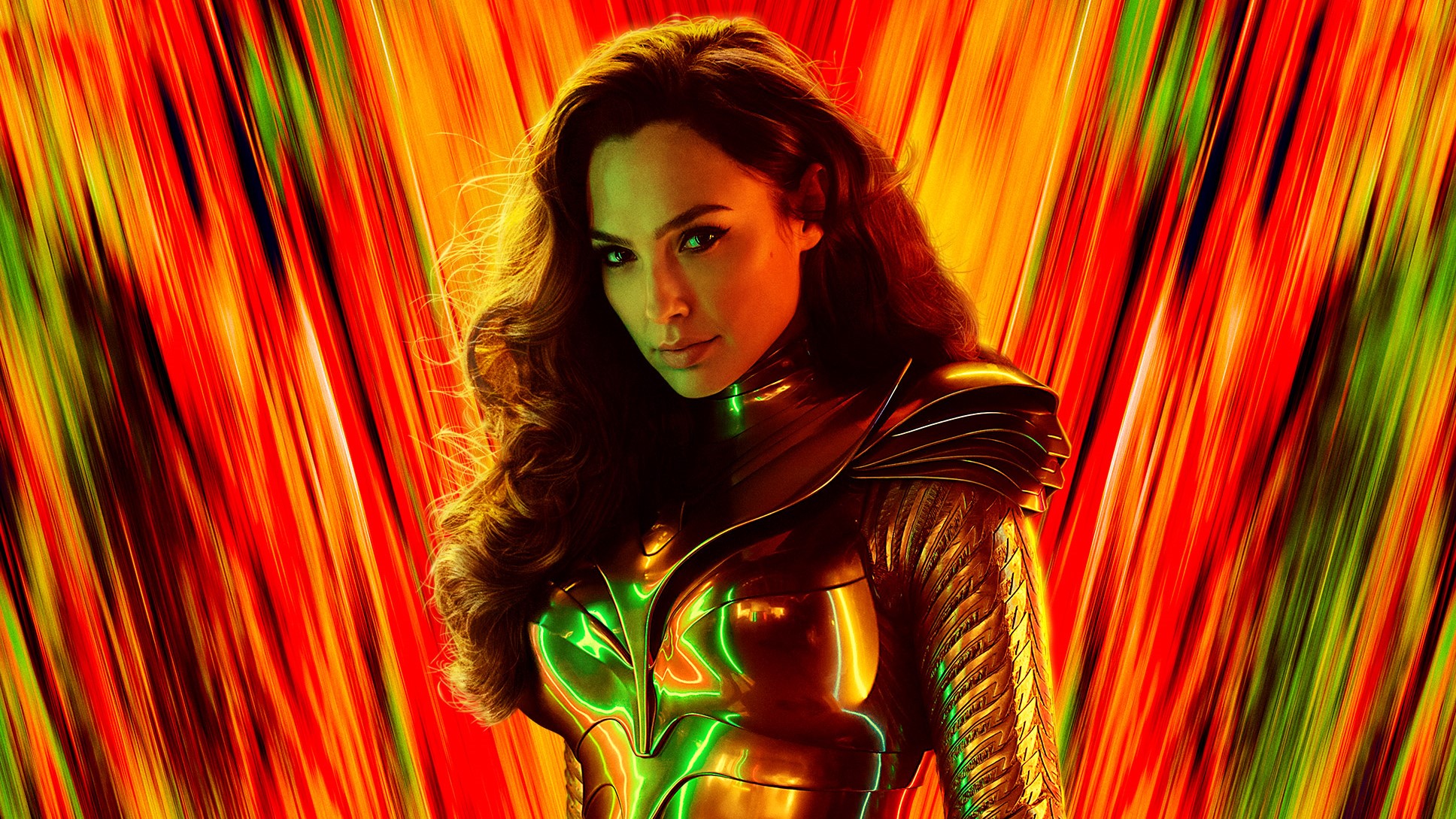Here's why Wonder Woman 1984 is disappointing

Warning: Spoilers for Wonder Woman 1984 follow.
Wonder Woman 1984 has arrived at the end of a weird year for cinema. If you saw a blockbuster on the big screen after March 2020, you're pretty much in the minority; the pandemic hit the industry incredibly hard, from the way movies are made to how they're seen. But after a messy 12 months, having an all-new DC Comics adaptation drop on HBO Max in the US and hit the big screen elsewhere should've marked a pleasant end to 2020.
It doesn't feel like the release has been a slam dunk, though. A few outlets have covered what's perceived to be a negative or at least mixed fan reaction to the film – something I find impossible to measure when the angriest voices are always amplified around big pop culture moments. I agree with the overall sentiment that the film is disappointing, though. But I think this is only partly the movie's fault – timing is a factor here, too.
Wonder Woman 1984 sees Diana (Gal Gadot) living an undercover life decades after the end of World War I. She still grieves for Steve Trevor (Chris Pine), but has a nice career working as an anthropologist, and beats up criminal jerks in her spare time. She befriends Barbara Minerva (Kristen Wiig), a nice but insecure colleague who wants to be more like Diana. Soon, the two happen across a mythical, self-explanatory object called the Dreamstone – which gives Barbara a newly found desirable status (largely by changing her outfit and removing her glasses) and super strength, though clearly at some kind of moral cost.
Diana's unconscious wish, meanwhile, is that Steve Trevor comes back from the dead – and it works, though he occupies a different body now. The Dreamstone also attracts the attention of TV personality and struggling oil baron Maxwell Lord (Pedro Pascal), who has his own world-altering plans for the artefact.
Compared to the original Wonder Woman – an imperfect film that ably took Diana out of the sheltered life of Themyscira in order to intervene in The Great War – this is a surprisingly throwaway follow-up. It has one thing to say: be careful what you wish for. And it makes this point over and again, in such obvious ways, that it feels weirdly naïve and outdated, and perhaps targets the film at a younger audience than the original.
The problem is, the film is not fun enough overall to make up for this. Wonder Woman 1984 is a painful 151 minutes long – and it really feels it, despite a few neat set pieces breaking all of that up. The last hour of this film is hard work. Despite committed performances from Pedro Pascal and Kristen Wiig – as Maxwell Lord and Cheetah, respectively – the movie's two villains are frustrating for different reasons.
Sign up for breaking news, reviews, opinion, top tech deals, and more.
Even the movie's best part – Steve being a fish out of water in the '80s, and reuniting with Diana – doesn't get to be fun for more than a few minutes of this very long runtime.
Here, I'll dig in to why I found Wonder Woman 1984 to be disappointing, even if I did like parts of the movie.

- How to watch the DC Extended Universe in order
- What we know about The Batman
- How to watch Wonder Woman 1984 online
A film made for a different time?

I found Wonder Woman 1984's overall message – of being careful what you wish for and trusting in people to ultimately do the right thing – to be particularly jarring this year. It's simplistic in a way that goes against the current of the times we live in, with
a brainless optimism that feels jarring.
I found Diana's vague superhero ideology of hopefulness kind of frustrating here, too, and I wonder if the filmmakers truly have an idea of what sets her apart from, say, Superman, other than the fact she's Amazonian.
Still, I can't help feeling like Wonder Woman 1984's tone would've seemed less annoying in a normal year where it would be sandwiched between many other blockbusters. This wouldn't make it a good superhero movie, but being the only game in town right now puts an extra burden on it to impress – particularly when it's being used to prop up a confusingly branded (but pretty good) US streaming service.
Again, I don't think I'd have cared about Wonder Woman 1984 feeling outdated or simplistic in normal times, but coming in below expectations seems like a bigger deal when every other blockbuster movie is currently on ice.
This film also has a bit of a setting problem. The '80s backdrop offers some fun color in terms of fashion and cultural reference points for the first hour, but the rest of the movie does little with it, save for using the Cold War as the basis of some third act nuclear war drama.
There's no set piece that comes close to the power of the No Man's Land scene in the 2017 original, either, though that was always going to be hard to top. Steve and Diana flying through 4th of July fireworks is a genuinely nice and romantic moment, though.
Why is this film so long?
Unless your superhero movie is a character-stuffed team-up picture like Avengers: Endgame – which I still think is a bit too lengthy – please don't make it more than two hours long. I reached the 90-minute mark in this film and I really wanted it to be over.
I have no idea why Wonder Woman 1984 needed to be 151 minutes in length, and it's interesting to read that Warner Bros wanted director Patty Jenkins to cut one of the movie's two intro set pieces – one an overly long Amazonian Olympics sequence, the other a nicely-executed mall fight that gives us our first glimpse of Diana as a vigilante in 1984.
Both do set up story and character threads that are to pay off later, but the Olympics sequence was way too protracted, not very interesting to watch, and felt like it mainly existed to remind us of the cool Amazonian characters we met in the first film – Antiope (Robin Wright) and Hippolyta (Connie Nielsen).
Still, the first hour of this film isn't so bad. Still, as mentioned, once Chris Pine's Steve Trevor is back in the frame, you don't quite get enough of his and Diana's status quo in this new world – the idea that Diana is physically weakened by Steve's resurrection is an interesting notion, though, and it definitely lands when the two inevitably have to say goodbye to each other later on.
The villains chew up too much of the running time for me. I didn't quite get what the filmmakers were going for with Maxwell Lord – a classic '80s excess guy who's all style and no substance, I guess, with a kind of vague layer of Trump. But I found Lord's scenes very hard to watch, despite appreciating how much Pascal throws himself into it. There's nothing sympathetic about him other than the fact he has a son, and he spends a bunch of the film sweating in front of powerful men, vowing to make their dreams come true. He's just not very entertaining to watch, and the movie's twist that he becomes the Dreamstone after wishing for it is conceptually confusing.
I almost wish they recreated this fairly famous and controversial comic book moment, where Diana snapped Lord's neck. It was extremely contentious, but more dramatically satisfying than anything that happens in this film:
In the comics, the conflict between Wonder Woman and Maxwell Lord ends with her snapping his neck. (I wholeheartedly support this, fight me.)So, here's my question: Do you think Diana will snap his neck in WW84? pic.twitter.com/OMUFJSL2qSSeptember 5, 2020
Again, the movie would rather have us believe in the power of people making sensible decisions and being good at their core – this did nothing for me. When we met Diana in Batman vs Superman: Dawn of Justice, she was slicing bits off of the apocalyptic mutant Doomsday. Here, she's a much more passive figure, and I think the film is a bit too afraid to let her get her hands dirty. I wonder if this is an overreaction to the criticism that these superhero films were getting a bit too dark.
Likewise, the movie waits a long, long time for Kristen Wiig's Cheetah to actually become a full-blown villain – and parts of their final encounter were already spoiled by the trailers. Barbara's obsession with protecting how she looks and how she's perceived is ultimately why she turns on Diana, but it surfaces too late into the film to have any emotional impact.
Like many other people, too, I'm over superhero movies doing this with their villains:
This is the weirdest, most specific comic book movie trope.#WW84 pic.twitter.com/CTLhZc67SADecember 27, 2020
Who is Diana, actually?

Other than pining for Steve Trevor and having a career as an anthropologist, you don't get much of a sense of Diana having an inner life in this film. He's been dead for almost 70 years, and sure, her heart was broken, but that's a hell of a long time for a mythical superhero to accumulate some real-life experiences in the human world. It just feels like no time has passed between the two movies.
They could've done a little better by her – and, by extension, the other characters in the film. Diana's initial, supportive friendship with Barbara Minerva is actually pretty nice in terms of character development, and not something I feel like I see in these kinds of films so much, but after Steve returns from the dead, the film doesn't draw that much attention to their relationship. This meant I didn't really care when Barbara became Cheetah and inevitably fought with Diana much deeper into the film. I had no investment in it.
I'm wary of not holding Wonder Woman to a higher standard than some of the more throwaway Marvel movies, which also aren't always that preoccupied with characterization or even having a meaningful theme (hey, Ant-Man and the Wasp!).
I think my disappointment here stems from how confident that first Wonder Woman film was, in how it treated Diana as a morally switched-on outsider in a war-stricken human world. In Wonder Woman 1984, they don't find a way to make the character resonate in the modern age. What is her whole deal? Does she just save kids in malls now?
Again, the vague optimism running through the heart of this movie just didn't do much for me – though it's still, by default, one of the better films of the DC Extended Universe so far.
Wonder Woman 1984 is streaming now on HBO Max in the US, and has been released theatrically everywhere else.
- Best HBO Max shows: 26 amazing shows to stream

Samuel is a PR Manager at game developer Frontier. Formerly TechRadar's Senior Entertainment Editor, he's an expert in Marvel, Star Wars, Netflix shows and general streaming stuff. Before his stint at TechRadar, he spent six years at PC Gamer. Samuel is also the co-host of the popular Back Page podcast, in which he details the trials and tribulations of being a games magazine editor – and attempts to justify his impulsive eBay games buying binges.